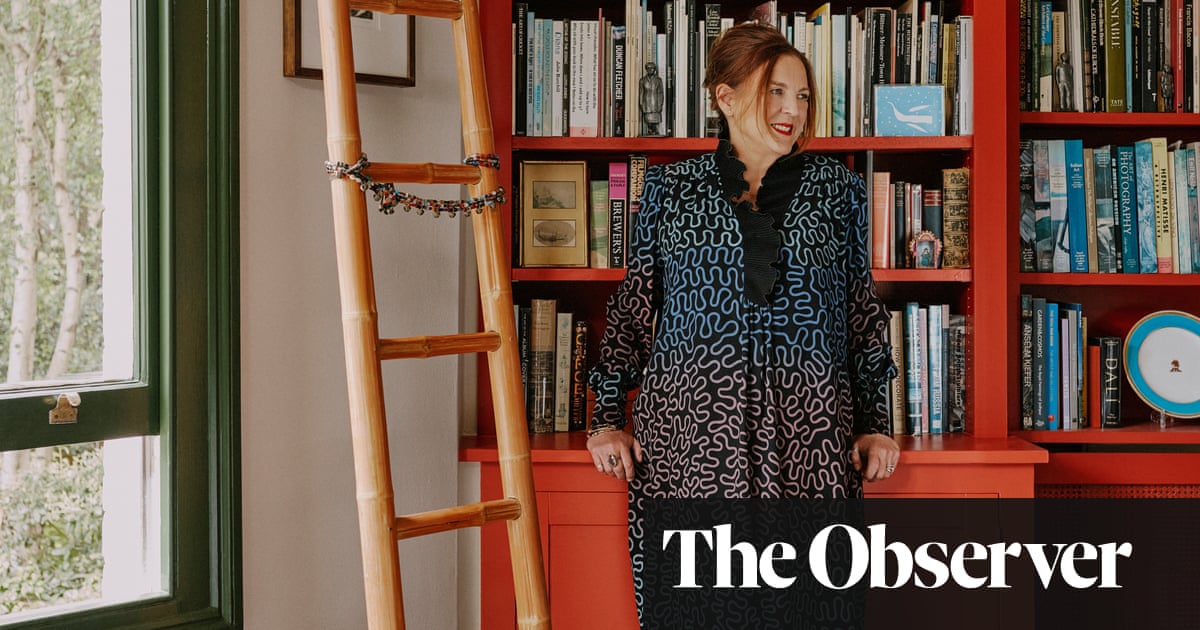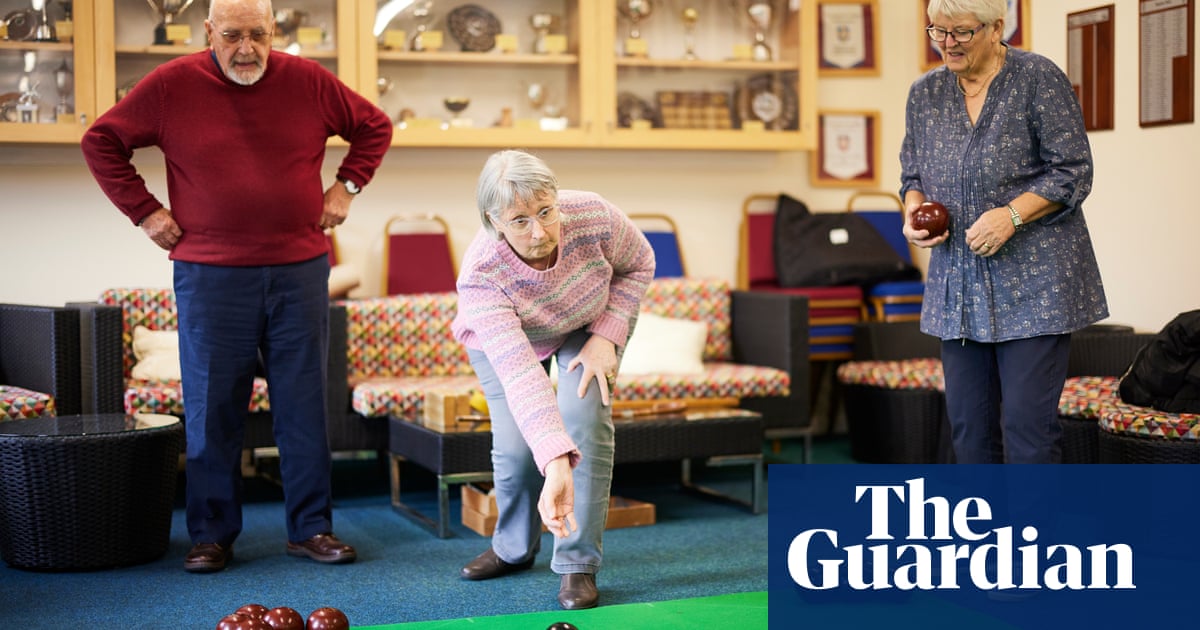
Left paralyzed by a neurological illness, Dr. Jamil Zogheib worked tirelessly to raise awareness of the disease before his death this week
While the average survival period for ALS is five to seven years, Zogheib’s resilient faith and hopeful view on life allowed him to live for 10 years
DUBAI: Dr. Jamil Zogheib was not just a regular Lebanese pediatrician. He was also a fighter who lived his life with optimism despite being hit by the neurological disease amyotrophic lateral sclerosis (ALS) in 2008.
Also known as Lou Gehrig’s disease, the neuromuscular disorder affects the nerve cells and spinal cord progressively, leading to the paralysis of the muscles.
Zogheib, who became permanently paralyzed after contracting the disease, died on Monday from complications resulting from the illness.
“From the first time I met him and he looked at me with his eyes, I felt that we had a bond that would last forever,” said Karen Boustany, a friend and TV host who worked with Zogheib. “It was a mutual, positive energy.”
When she first interviewed him for her show in Lebanon, the clip went viral as thousands across Lebanon were touched by his story. Instead of allowing himself to surrender to paralysis, Zogheib, who has three children, used a special device to communicate with his eyes, enabling him to write a total
of 10 books.
His first book, “Ma Vie, Mon Histoire” (“My Life, My Story”), tells the tale of his disease. His second was named “Le Medecin des Ames Perdues” (“The Doctor of Lost Souls”). In his books, he offers a message of hope, while struggling against the illness.
Boustany was so moved that she made a documentary about him, entitled “Jamil, A Flying Soul.”
“I used to go to visit him all the time,” she recalled. “I took my family, and we became friends, but every time I would come, we would plan projects. We were both the brain, but I was the physical energy, because he couldn’t do it. He was truly the wind beneath my wings.”
She felt she had become his messenger in spreading awareness about the disease and its treatment. “He changed my life,” she said. “He even knew his 10th book would be his last, as he named it ‘La Derniere Page’ (‘The Final Page’). He was in love with life, and he didn’t want to die, always hoping to find a cure.”
Their partnership generated a number of projects, pushing Zogheib to fight for his life even further. In 2015, they established the Lebanese ALS Association, of which Boustany became president.
“He wanted to spread awareness about the disease, because it’s not well known, as it’s not widespread,” she explained. “It was like cancer was 50 years ago — now it’s becoming more common and you can find more cases, but 10 to 15 years ago, it was still an ‘orphan disease.’ Not many people had it, and you don’t have people investing to find a cure.”
The association worked wonders, supporting 100 ALS patients across Lebanon in every possible way — psychologically, medically, socially and financially. Together, they created the ALS Day, a family day on the first Sunday of every September when people from all around the country spend time together while playing games over lunch.
As a public figure, Boustany was also able to invite a number of celebrities to share the special day, now in its fourth year, with patients and their families. “It was so beautiful,” she said. “It was like a festival, and it made them all truly feel like a part of society.”
A gala dinner in Dubai, with Zogheib’s presence, helped to raise funds in 2105, followed by the first ALS medical conference in Lebanon in 2016. Zogheib received standing ovations as one of the most celebrated men in both countries.
In January 2018, Lebanese President Michel Aoun visited Zogheib at home after hearing about his story.
“It is the death of a king,” Boustany said fighting back tears. “He was always ready, always dreaming and ready to fulfil his dream. His body or disease never held him back. He had such an energy, such a strong brain, he was a genius and you could feel his soul through his eyes — he had amazing eyes. He used to look at me, and
I could understand everything he wanted without even telling me.”
Boustany wished to pay tribute to him and his incredible story. “I took Dr. Jamil like my soulmate, and everything I wanted to do for myself, I would do for him,” she said. “Today, I am happy that I did all this when he was alive, because you usually honor a person after his death, which isn’t OK. He is a lesson of life, he was my mentor, and he changed my life.”
Zogheib touched the lives of many. Dr. Kamal Kallab was one of them. A neurologist and president of the scientific committee of the ALS Association, Kallab was Zogheib’s senior when he was still a medical student.
“Later on, we worked together — we had to see patients together and manage them together,” Kallab said. “When he was diagnosed with ALS, I wasn’t surprised by his capacity to go beyond any obstacle. I always knew him as the most enthusiastic person, and the word impossible didn’t exist for him. He was always this way.”
When the disease struck Zogheib, he turned to Kallab for advice. “He knew what it was and what his future held,” he explained. “I remember he told me, ‘I am not afraid, I can cope with it, just be frank with me.’ Patients like these in our professional life are a hallmark — we always remember these outstanding personalities.”Kallab followed him regularly as he started to fight against the inevitable handicap. “In this disease, the handicap is progressive,” he said. “It’s the kind of disease where we are never better than before. It worsens over time, slowly, and without any improvement. Just imagine a person who has this disease, who is a clever doctor and knows what he will be facing in a few years.”
While the average survival period for ALS is five to seven years, Zogheib’s resilient faith and hopeful view on life allowed him to live for 10 years.
“It was more than expected because of his will,” Kallab said. “Knowing what he will face, he was preparing himself in advance to manage the difficulties of becoming handicapped. He developed all possible ways of constantly being productive.”
The disease has a host of detrimental effects, including loss of power in the limbs and in the tongue, removing the ability to speak and, potentially, to breathe.
In the final stages of Zogheib’s life, he could only move his eyes. “He knew that, and he prepared himself with a special electronic device, where a beam would go to his eyes, and he would move his eyes, reflecting the beam to any letter on a keyboard. That’s how he wrote 10 books.”
Kallab said the books truly reflect Zogheib’s personality. Some raised awareness for parents of children affected by the disease, while others related to his own experience fighting the illness.
“Even when he was very sick, he was thinking about and caring for others,” Kallab said.
“He was amazing and so commendable. In a lifespan, it is usually very rare to come across such people — the association was about caring for others and letting people know how they can help themselves.
“Caring for others, even in his weakest moments, was his signature, and he never forgot that.”












